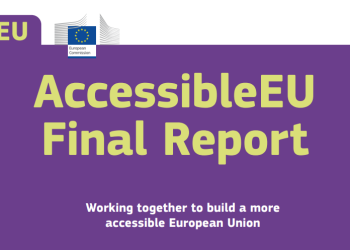According to the Commission’s report, people at risk of poverty or social exclusion in the EU have difficulties in accessing essential services such as energy, transport and digital communication. The report, the first-ever on this issue, sheds light on the structural challenges these groups face in using such services and underlines the need to ensure that the society-wide green and digital twin transition is fair and inclusive.
According to Principle 20 of the European Pillar of Social Rights, everyone has the right to easy-to-use and affordable key services, including water, sanitation, energy, transport, financial services and digital communications.
However, the new EU report shows that people at risk of poverty or social exclusion face significant challenges in this respect. Moreover, the findings highlight that disadvantaged groups, such as the Roma community or the homeless, are more likely to encounter difficulties, particularly in relation to energy and transport.
Based on the latest available data on income and living conditions in the EU (EU SILC), the report offers a deeper understanding of the potential impact of the current cost-of-living and energy crises on accessing essential services.
It adds valuable insights to ongoing discussions related to definition of “energy poverty” and “transport poverty,” helping to shape action at EU level. And it shows that easing access to essential services for groups facing barriers can help the EU achieve its target of lifting at least 15 million people out of poverty and social exclusion by 2030.
Key findings
- Water and sanitation – only 1.5% of the EU population lack basic sanitary facilities like a bath, shower or flushing toilet in 2020. However, for those at risk of poverty or social exclusion, the figure is 5.1% across the EU, with spikes of 17.4 % in Latvia, 18.1 % in Lithuania, 20.6 % in Bulgaria and 56.6 % in Romania. This indicates a strong link between limited access to water/basic sanitary facilities and poverty.
- Energy – in 2022, the share of people that struggled to keep their homes adequately warm across the EU increased to 9.3%, showing the initial impact of the energy crisis. People at risk of poverty or social exclusion face disproportionate challenges in accessing energy, since for them the respective figures are higher in all EU countries, with the EU average at 20.2 %. However, not only this group is affected: according to calculations based on 2021 data, around half (53 %) of those who struggled to keep their homes adequately warm in the EU belongs to middle-income groups.
- Digital communications – some 2.4% of people in the EU were unable to afford an internet connection in 2022. However, for the people at risk of poverty or social exclusion, the EU average was 7.6%, with Romania, Bulgaria and Hungary recording values over 25%, 20,5% and 16,5%.
- Financial services – most people in the EU had access to a bank account in 2021, with only Hungary, Bulgaria and Romania showing rates below 90%. However, high fees, lack of information and legal requirements pose barriers for specific groups, particularly those with low incomes, the homeless and undocumented migrants.
- Transport – according to the latest available data (which for transport dates back to 2014), 2.4 % of all people in the EU and 5.8 % of those at risk of poverty could not afford to use public transport regularly. In addition to cost, access to transport depends on other factors, including the quality and frequency of services, the state of the infrastructure and accessibility (both digital and physical). The lack of up-to-date EU-level data on transport affordability underscores the need to regularly collect this data, to be able to fully assess the situation.
Structural barriers to access essential services
The report points out the following structural barriers preventing people at risk of poverty or social exclusion from accessing essential services:
- Affordability – at-risk households tend to spend around 60% more of their budget on essential services. This means that price increases have a greater impact on the most disadvantaged, eroding their purchasing power and hindering access to essential services.
- Lack of skills – inadequate skills present a barrier to using some essential services, such as digital communication and financial services. The report emphasises the importance of acquiring the necessary skills, to avoid becoming socially excluded and be able to participate actively in the labour market. Indeed, this is an objective of the European Year of Skills.
- Insufficient infrastructure – access to essential services is affected by geographical and location-based factors, such as whether people live in rural or remote areas (including islands). This is particularly the case for services like transport and digital communications, where transport infrastructure is limited, and broadband connections are of lower quality.
National and EU-wide solutions
The report also outlines existing support measures in different EU countries, with a particular focus on social policy measures.
For example, in many countries minimum income schemes help make sure that people without sufficient resources have effective access to the goods and services they need. This ensures they have a chance to participate actively in society.
For its part, the EU also supports access to essential services through its various funds (e.g. European Social Funds+, European Regional Development Funds, Recovery Resilience Facility), as well as through targeted legislation, universal/public service obligations and measures to protect consumers.
Finally, the findings demonstrate that equitable access to essential services is crucial for ensuring that, as we make the switch to more widespread use of the green and digital transitions, no sections of society are left behind, and everybody can get access to the services they need.











